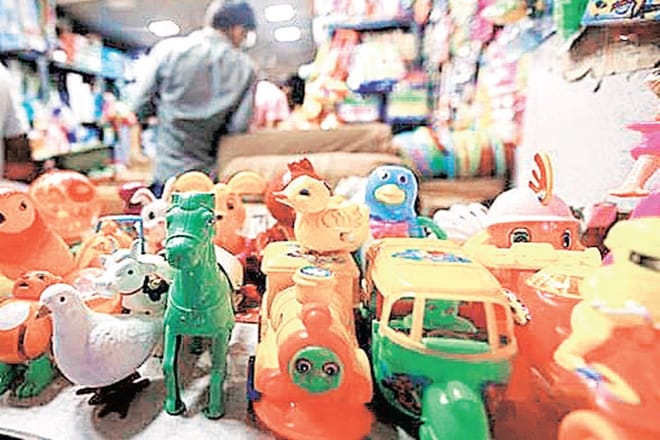Over the last three to four years, the Chinese market has seen labour strikes in some of its major factories, which resulted in shrinkage in its workforce. The demand in wages has been another call by the Chinese workforce. Economists say that China is trying to rebalance its economy. One of its aims is to reduce dependence on exports and increase the share of consumption. John Baby, chief executive officer (CEO) at Funskool, says that a shrinking workforce and rising wages in China is likely to benefit the toy manufacturing industry in India. “I think there is an opportunity for India as China is not encouraging more labourers,” he adds.
Sujan Hajra, chief economist, co-head research at Anand Rathi Securities, said, “China does not want polluting industries and exports relating to that. If labour costs increase, then obviously in an intensive industry like toys, it won’t be able to compete and China is trying to vacate that space. It is totally right that an increase in labour costs in China could help the Indian toy industry.”
The Funskool CEO explains that Funskool has a strong presence in southern India, with over 40% of its business captured in the southern part of India and the remaining 60% in the rest of India. “I think that the southern Indian market is a better market for all branded toys, with infants and playschool being the biggest segment,” adds John.
With regard to exports, he acknowledges that the toy industry is competitive. “Currently, our domestic business is 70% and exports are 30%, and by two years we plan to achieve a 50:50 ratio. In comparison to exports, our domestic business is currently more profitable,” he explains. According to a report by the Department of Industrial Policy and Promotion (DIPP), only 20% of the Indian market is served by Indian toy manufacturers while the rest is served by imported toys from different countries, mainly from China and Italy. Ironically, till September 2017, the Indian toy industry, which largely consisted of small and medium enterprises (SMEs), was caught in a strange paradox — it recorded double-digit growth over the last five years, and yet around 40% of Indian toy manufacturing units had closed down.
Hajra further added that the lower-category toys from China are no longer being imported, but for higher-end toys there is still some competition. Funskool’s CEO believes that there is a potential for growth in the organised toy-manufacturing sector owing to cheap labour, benefit of Chinese market restructuring, government initiative etc. Promoted by the MRF Group, Funskool represents Hasbro, Takara Tomy, Ravensburger, SIKU, Playmobil, Meccano and few others through distribution agreements for India.
Despite Chinese demand to increase wage hikes and several strikes in the past, it seems the manufacturing capacity is unlikely to stop in the future. A recent PwC report suggested that artificial intelligence could actually create nearly 100 million new jobs in China over the next two decades.


